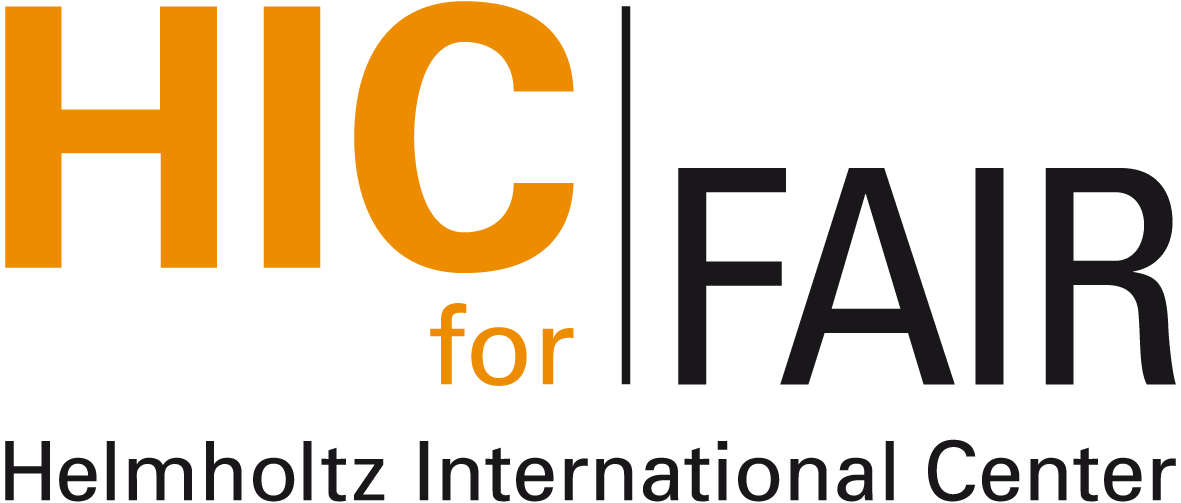 Nuclear Physics Colloquium
Nuclear Physics Colloquium
Location: Institute
of Theoretical Physics, Max-von-Laue-Str. 1, Serminar Room
PHYS 2.116
Time: Thursday, November 28, 2013,
2:30-3:30pm (plus
10min for discussion)
Contact: hees@fias.uni-frankfurt.de
Heavy quark quenching and elliptic flow from RHIC to LHC: can
the experiments be understood by pQCD?
J. Aichelin (SUBATECH, Nantes, France)
Recently,
we have proposed a microscopic approach for the quenching and
thermalisation of heavy quarks (HQ) in ultra-relativistic
heavy-ion collisions (URHIC) [1, 2, 3, 4], assuming that they
interact with light partons through both elastic and radiative
processes evaluated by resorting to some parameterization of the
running coupling constant, while those partons are spatially
distributed along the hydrodynamical evolution of the hot
medium. This approach is able to explain successfully several
observables measured at RHIC and LHC, such as the nuclear
modification factor and the elliptic flow of open heavy flavor
mesons and non-photonic single electrons. The diffusion
coefficient of heavy quarks in the quark gluon plasma – a
fundamental property of this state of matter – can thus be
extracted and compared with recent lattice calculations. In this
contribution, we provide a general overview of our MC@HQ event
generator which can presently be coupled to the hydrodynamical
evolution of the plasma as realized by the Kolb-Heinz approach
or by the EPOS model. We discuss the influence of the different
hydrodynamical evolutions on the predictions for heavy mesons.
We confront the results of our model for D and B mesons as well
as for the lepton production in URHIC with experimental results
obtained so far by the various collaborations at RHIC and LHC.
Perspectives for future observables like correlations will be
proposed.
References
[1] P.B. Gossiaux, J. Aichelin, Phys. Rev. C 78
(2008) 014904, [hep-ph/0802.2525].
[2] P.B. Gossiaux, R. Bierkandt, J. Aichelin, Physical Review C 79 (2009) 044906.
[3] P.B. Gossiaux, V. Guiho, J. Aichelin, J. Phys. G: Nucl. Part.
Phys. 37 (2010) 094019.
[4] P.B. Gossiaux et al., Accepted for publication in Nuclear
Physics A [arXiv:1209.0844].
Nuclear Physics Colloquium Homepage
 Nuclear Physics Colloquium
Nuclear Physics Colloquium  Nuclear Physics Colloquium
Nuclear Physics Colloquium